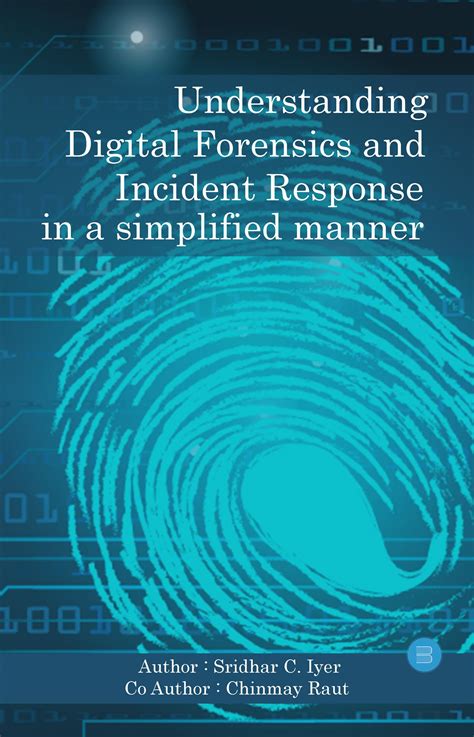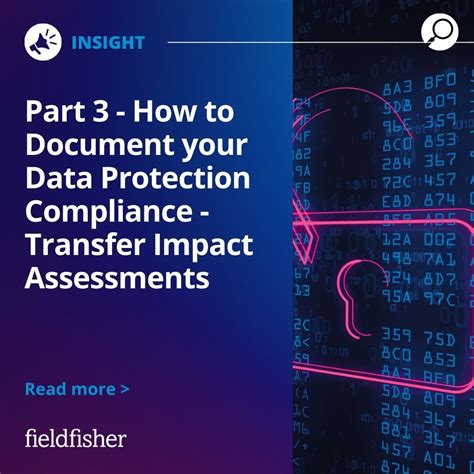Facing criminal charges can be an overwhelming experience, with significant implications for one’s future. Understanding the nature of these charges and the defense strategies available is crucial for anyone involved in the legal system. This comprehensive guide aims to shed light on the most common criminal charges and the effective defense strategies that can be employed to address them. We will explore the legal process, the rights of the accused, and offer guidance on selecting a skilled defense attorney. Additionally, we will discuss how to build a strong defense, potential outcomes, and sentencing considerations. Whether you’re directly involved or simply seeking knowledge, this guide will provide valuable insights into navigating criminal charges and formulating an effective defense.
alijyun.com invites you to explore this topic thoroughly.
1. Introduction
Navigating the legal landscape when faced with criminal charges can be daunting and complex. The stakes are high, and understanding the nuances of the legal process, your rights, and available defense strategies is essential. This guide is designed to provide a comprehensive overview of the most common criminal charges and the effective defense strategies that can help mitigate their impact. We’ll begin by examining the types of criminal charges individuals might encounter, from misdemeanors to felonies, and delve into the intricate legal process that follows an arrest. Understanding your rights as an accused person is crucial; knowing what protections and entitlements you have can significantly influence the outcome of your case.
Choosing the right defense attorney is another critical decision that can shape your case’s trajectory. We’ll offer guidance on how to select a lawyer with the expertise necessary for your specific charges. From there, we will explore various defense strategies tailored to different criminal offenses and provide insights into building a robust defense. Additionally, we’ll discuss potential outcomes and sentencing possibilities, helping you anticipate and prepare for what lies ahead. Whether you’re facing charges yourself or seeking information on behalf of someone else, this guide will equip you with the knowledge needed to navigate the complexities

2. Common Criminal Charges
Criminal charges can vary widely, but some offenses are more common than others. Misdemeanors, such as petty theft, vandalism, and simple assault, typically involve less severe penalties and are punishable by fines or short-term imprisonment. Felonies, on the other hand, are more serious and include charges like burglary, drug trafficking, and violent crimes such as assault with a deadly weapon or homicide. Each type of charge carries its own set of potential consequences, from longer prison sentences to substantial fines.
Understanding the nature of these charges is crucial for effective defense. For instance, a theft charge might involve proving intent or demonstrating a lack of evidence, while a drug trafficking charge could require challenging the legality of the evidence obtained. Being aware of the specific charges you face helps in developing targeted defense strategies and addressing the legal issues pertinent to your case.

3. Understanding the Legal Process
Understanding the legal process is vital when navigating criminal charges. The process typically begins with an arrest, followed by an arraignment where formal charges are presented and a plea is entered. If the case proceeds, a preliminary hearing is held to determine if there is enough evidence to move forward.
Next, the case may go through pre-trial motions and discovery, where both sides exchange evidence and prepare their arguments. During the trial, the prosecution presents evidence and witnesses, while the defense challenges these elements and presents its case. After the trial, a verdict is rendered.
If found guilty, sentencing follows, where penalties are imposed based on the severity of the crime and other factors. The convicted party may also have the option to appeal the decision. Each stage of the legal process offers opportunities to influence the outcome, making it essential to understand and effectively navigate each step with the assistance of a skilled defense attorney.

4. Rights of the Accused
The rights of the accused are fundamental to ensuring a fair legal process. Among these rights is the presumption of innocence, meaning the accused is considered innocent until proven guilty. The right to remain silent is crucial, allowing individuals to avoid self-incrimination. They also have the right to legal representation, ensuring they can have a defense attorney to advocate on their behalf.
Additionally, the accused is entitled to a fair and public trial by an impartial jury, which helps prevent biases from influencing the outcome. They have the right to be informed of the charges against them and to confront and cross-examine witnesses. The right to a speedy trial ensures that cases are resolved in a timely manner, preventing unnecessary delays. Understanding and exercising these rights can significantly impact the defense strategy and the overall outcome of the case.
5. Selecting a Defense Attorney
Selecting a defense attorney is a critical step in addressing criminal charges effectively. The right attorney can significantly influence the outcome of a case. Begin by seeking an attorney with specialized experience in handling the specific type of charge you face. For instance, if you’re charged with a drug-related offense, choose someone with a track record in drug defense cases.
Evaluate potential attorneys by checking their qualifications, experience, and reputation. Look for reviews, ask for referrals, and consider their past case results. An effective defense attorney should offer a clear strategy for your case and communicate openly about potential outcomes and risks.
Schedule consultations with a few candidates to assess their approach and compatibility. During these meetings, discuss their experience, fees, and how they plan to handle your case. Ensure that the attorney is responsive, transparent, and makes you feel comfortable. A strong attorney-client relationship is essential for a successful defense, so take the time to choose someone who meets these criteria and who you trust to represent your best interests.
6. Defense Strategies for Common Charges
Defense strategies vary based on the nature of the criminal charges. For theft-related offenses, a common strategy is to challenge the prosecution’s evidence by questioning its validity or demonstrating a lack of intent. Proving that the item in question was not taken with criminal intent can be crucial.
In drug-related cases, a viable defense might involve contesting the legality of the search and seizure that led to the evidence being collected. Arguing that law enforcement acted outside legal bounds can sometimes result in key evidence being dismissed.
For assault charges, self-defense or defense of others can be effective strategies if it can be shown that the use of force was reasonable and necessary under the circumstances.
In violent crime cases like homicide, defenses may include challenging the prosecution’s evidence or presenting an alibi. Mental health defenses, such as demonstrating lack of criminal intent due to mental illness, can also be considered in certain cases.
Each charge requires a tailored approach, so working with an experienced attorney to develop a strategy suited to the specifics of your case is essential for a robust defense.
7. Building a Strong Defense
Building a strong defense involves several key steps to effectively counter the charges. Start by gathering and reviewing all relevant evidence, including police reports, witness statements, and any physical evidence. This thorough examination helps identify any weaknesses in the prosecution’s case and ensures that your defense is grounded in facts.
Working closely with your attorney, develop a clear and coherent defense strategy tailored to the specifics of your case. This may involve presenting evidence that disproves the charges, highlighting procedural errors made by law enforcement, or demonstrating that the evidence was obtained unlawfully.
It’s also crucial to prepare for trial by rehearsing your testimony and anticipating potential questions from the prosecution. Engage expert witnesses if necessary, as their testimony can provide critical support for your defense.
Maintaining open communication with your attorney and staying informed about the progress of your case helps ensure that your defense is both proactive and adaptable to any changes in the legal proceedings.
8. Potential Outcomes and Sentencing
The potential outcomes and sentencing for criminal charges depend on several factors, including the nature of the offense, the strength of the evidence, and the effectiveness of the defense. After a trial or plea agreement, several outcomes are possible.
If found guilty, sentencing can vary widely. For misdemeanors, penalties might include fines, probation, or short-term incarceration. Felonies typically carry more severe consequences, such as lengthy prison sentences, substantial fines, or both. Sentencing may also include mandatory counseling or community service, depending on the offense.
In some cases, alternative sentencing options like diversion programs or rehabilitation might be available, especially for first-time offenders or non-violent crimes. These programs aim to address underlying issues and prevent future offenses.
The judge considers various factors when determining the sentence, including the defendant’s criminal history, the impact on victims, and any mitigating or aggravating circumstances. It’s essential to work with your defense attorney to present a strong case for leniency and to explore all possible sentencing alternatives.
In the event of a conviction, the possibility of an appeal exists, allowing for the review of legal errors or new evidence that might impact the outcome.
9. Conclusion
Navigating criminal charges is a complex and challenging process, but understanding the key aspects of criminal law can significantly impact the outcome of your case. This guide has explored common criminal charges and the various defense strategies that can be employed to address them effectively. By understanding the legal process, knowing your rights, and selecting a skilled defense attorney, you can better prepare yourself for the legal challenges ahead.
Building a strong defense involves thorough evidence review, strategic planning, and preparation for trial. Each case is unique, and a tailored approach is essential for addressing the specific charges you face. The potential outcomes and sentencing can vary widely, but with a solid defense strategy, there may be opportunities for alternative sentencing or appeals.
Ultimately, the goal is to ensure that you are fully informed and prepared to navigate the legal system. Working closely with an experienced attorney and staying engaged throughout the process can help protect your rights and work towards the best possible outcome. By taking these steps, you can effectively address the challenges of criminal charges and seek a f
alijyun.com

